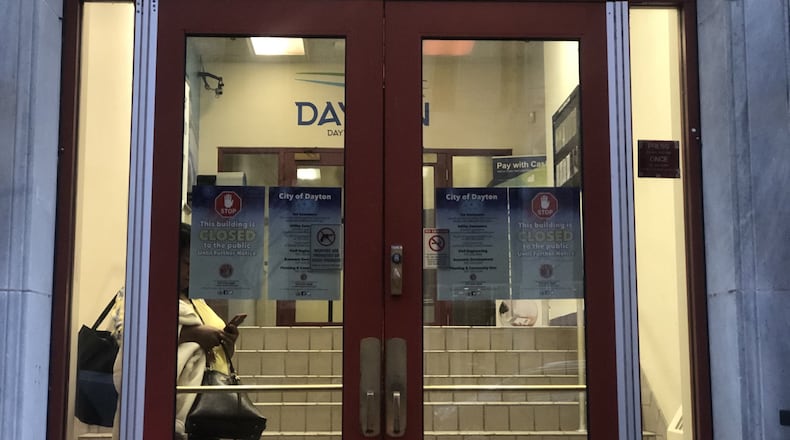“The CARES Act designates funds from the Coronavirus Response Fund for states and local governments with populations over 500,000. The understanding was that smaller local governments that did not meet that population threshold would receive funds from the state’s share directly,” Kent Scarrett, executive director of the Ohio Municipal League, said in an email.
RELATED: Senate approves $2 trillion Coronavirus rescue package
A clause in the law “could restrict a state from disbursing funds at all to local governments with a population under 500,000,” Scarrett continued.
The only Ohio city with a 500,000 population is Columbus.
In a telephone call, a U.S. Treasury official confirmed that states can grant funds to local governments so long as those funds are used in the same way as it is used by the states as outlined in the statute, according to the call to action to Ohio municipalities.
“However, there is now concern that the language defining how those funds could be used is too restrictive. The U.S. Treasury is reviewing the language and says it will provide a final determination and guidance on this issue,” according to Scarrett.
Coronavirus: Complete Coverage
“We urge our members to call their members of Congress and echo this request. Without direct funding, smaller local governments will be unable to continue providing critical services to their residents during this time of crisis,” Scarrett concluded.
The National League of Cities sent a letter to House and Senate leadership on March 24 as the federal lawmakers moved toward passage.
“Cities, towns and villages must be empowered in any federal negotiations, and we urge our partners on Capitol Hill to include critical local priorities in the final legislation to help the American people through this public health and economic crisis,”Clarence E. Anthony, CEO and Executive Director of the National League of Cities, saEid in a press release about the letter.
On Friday, the Trump administration and federal lawmakers continued to debate how the stimulus package would be carried out.
“All the Ohio cities were really disappointed the threshold was 500,000,” Dayton Mayor Nan Whaley said Friday.
Questions about the fairness of the threshold were bolstered by a Brookings Institution study that listed Columbus and Cincinnati as the top two American cities most effected by the pandemic and Cleveland and Toledo as 4th and 5th.
“I don’t think this money, we’ll ever see it,” Whaley said.
RELATED: Pelosi sees next relief bill with bipartisan goals
House Speaker Nancy Pelosi called for additional payments to families, funding for unemployment claims and health-care resources.
Whaley said Dayton and other cities left out of the current funding were fighting for the next wave of stimulus.
“If the federal government doesn’t do something about this, we’re going to have a real problem getting through this pandemic,” the Dayton mayor said.
The issue has also drawn the attention of smaller cities around the area, including Lebanon in Warren County.
“The City is closely monitoring the situation and supports efforts to provide resources to local governments who are on the front lines of responding to the COVID-19 epidemic,” Lebanon City Manager Scott Brunka said Friday.
About the Author

